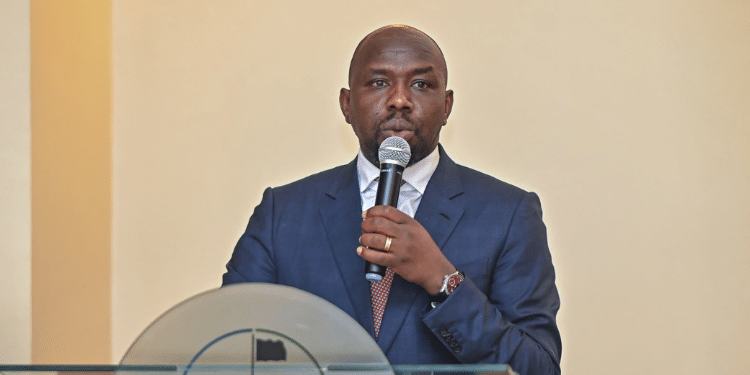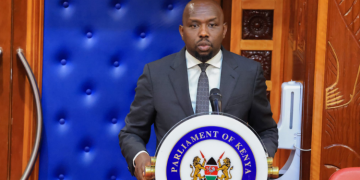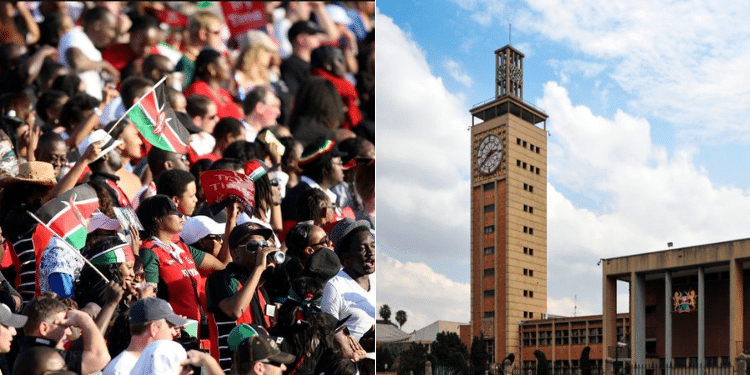Kenyans in diaspora are rallying for a change to a law they argue unfairly discriminates against them based on when they acquired dual citizenship.
This movement has gained momentum through recent parliamentary petitions, sparking a broader discussion about the fairness and impact of the current legal provisions.
Under the existing provisions of the Citizenship and Immigration Act, 2011, Section 10 establishes a distinction between Kenyans based on when they acquired foreign citizenship.
Specifically, Kenyans who acquired citizenship of another country before 2010 are classified as foreigners with the classification denying them the opportunity to regain Kenyan citizenship.
Kenyans who obtained foreign citizenship after 2010, on the other hand, are granted automatic dual citizenship.
This legal bifurcation has led to criticism for creating an unequal status among members of the Kenyan diaspora, resulting in what many see as discriminatory treatment.
The Petition for Change
The push for reform has been formalized in a petition led by Paddy Mwembu from Los Angeles, California.

The petition which has since garnered a total of 1,564 signatures from Kenyans across various countries, calls for the immediate suspension, amendment, or nullification of Section 10 of the Citizenship and Immigration Act, 2011.
Also Read: Kenyans in Diaspora Launch Contributions for Gen Z, Explain How Funds Will Be Used
The petition underscores that this section creates two separate categories of Kenyans living abroad, leading to unfair treatment.
Furthermore, it argues that the current law imposes unnecessary restrictions on those who acquired foreign citizenship before 2010, marginalizing them while granting more favorable conditions to those who obtained citizenship after 2010.
The petition argues that Kenyans in the diaspora should be viewed as a unified group, with equal rights to dual citizenship regardless of when they acquired foreign citizenship.
Paddy Mwembu, the petition mover, told The Kenya Times, “Section 10 of the constitution should be changed so that it can, on a going forward basis, provide a homogeneous classification to all Kenyans with foreign citizenship.”
Concerns Raised in Mwembu’s Petition:
Equality and Fair Treatment
Mwembu argues that the law, as it stands today, is punitive and discriminatory as it disenfranchises Kenyans who acquired foreign citizenship before 2010. He asserts that the goal is to harmonize the treatment of all Kenyans abroad to reflect their shared heritage and contributions.
“This is not fair, and our petition seeks to ensure the entire Kenyan diaspora is viewed through a single mirror,” says Mwembu.
Economic Contributions
Mwembu further highlighted the importance of remittances from Kenyans in the diaspora to Kenya’s economy. He highlights that according to data from the Central Bank of Kenya, remittances from Kenyans abroad totaled $4.142 billion (Ksh650.3 billion) in the year leading up to September 2023.
This figure represents a 3.5% increase from the previous year and underscores the significant economic impact of the diaspora.
Notably, July 2023 saw a record remittance inflow of $378.1 million (Ksh59.4 billion).
“When the CBK proudly reports these numbers, the bank uses the term ‘Kenyans living and working abroad. It is crucial to know that the larger part of these remittances is from Kenyans classified as foreigners as per immigration rules. How can we be classified as foreigners when it comes to immigration laws and a true Kenyan when discussing money?”
Retirement and Investments
A big section of Kenyans who acquired foreign citizenship before 2010 are approaching retirement age and wish to return to Kenya to spend their retirement years.
The current law complicates their ability to regain Kenyan citizenship, thereby impeding their plans. This group has been actively shifting wealth into Kenya, particularly in real estate, creating jobs and contributing to economic growth.
Kenyan Diaspora Highlight Legal and Social Implications
The petition also critiques the process and requirements for regaining Kenyan citizenship as outlined in Section 10 of the Citizenship and Immigration Act, 2011.
According to the Section, the requirements include a completed application form, two passport-sized photographs, copies of Kenyan ID and passport.

Copies of the foreign passport, foreign naturalization certificate and birth certificate are also among the listed requirements.
Also Read: Diaspora Jobs Scam: Govt Cautions Kenyans After Three Go Missing in Asian Nation
The petition argues that these requirements, while legal, exacerbate the division between Kenyans who acquired foreign citizenship before and after 2010.
It contends that the process does not take into account the personal and financial sacrifices involved in acquiring foreign citizenship.
Call to Action
The petitioners, including Mwembu, are now calling on key Kenyan government officials—President William Ruto, the Speaker of the National Assembly, the Speaker of the Senate, the Cabinet Secretary in charge of Immigration, and the Director General at the Directorate of Immigration and Citizen Services—to address this issue.
Mwembu further emphasized the anticipated outcomes of a successful petition highlighting that fulfilment of the demands will give much-needed relief to the large number of Kenyans in the diaspora who are negatively affected by the ‘foreigner’ classification.
“We are Kenyans; we hold birth certificates issued by the Republic of Kenya, we carry IDs, KRA PINs issued by Kenya, which means we are Kenyans by birth. Presently, I believe remittances from us in the diaspora are the most prominent foreign exchange earner for Kenya, surpassing exports such as coffee, tea, and horticultural products,” says Mwembu.
“A change in the current law will put all diasporans on the same level playing field, which is the right thing to do. I am convinced a positive change in this law will trigger requests for further constitutional amendments to areas that are not diaspora-friendly, such as the requirement to renounce dual citizenship to attain certain government positions”

The aim is to amend the law to provide equal citizenship rights to all Kenyans living abroad, thereby recognizing their contributions and addressing their emotional and social needs.
Additional Perspectives
Dr Pauline Kibisu, another Kenyan in the diaspora, also shared her views with The Kenya Times, terming the law “senseless”.
“The law is essentially senseless because nowhere in the process of getting a USA citizenship do you renounce your Kenyan citizenship,” stated Dr. Kibisu.
“That being the case, why are they requiring us to reapply for a citizenship that is still intact? What sense does it make to allow part of the diaspora populace dual citizenship, as it is supposed to be, yet subject another half to unnecessary torture? If they wanted to justify the mistreatment of a Kenyan citizen and deporting him to countries that are strange to him was uncalled for. Worse still, they are now subjecting diaspora Kenyans to a worthless expensive process. It begs one to wonder whose pockets the money is landing?”
The Kenyan diaspora’s campaign to amend Section 10 of the Citizenship and Immigration Act, 2011, reflects a broader effort to ensure fair treatment for all Kenyans, regardless of their citizenship status.
By addressing these perceived inequalities, the proposed changes not only aim to unify the diaspora but also enhance Kenya’s economic and social fabric.
The ongoing petition, backed by significant support from the global Kenyan community, underscores the urgent need for legislative reform to rectify this longstanding issue.
Follow our WhatsApp Channel for real-time news updates!
https://whatsapp.com/channel/0029VaB3k54HltYFiQ1f2i2C












































































